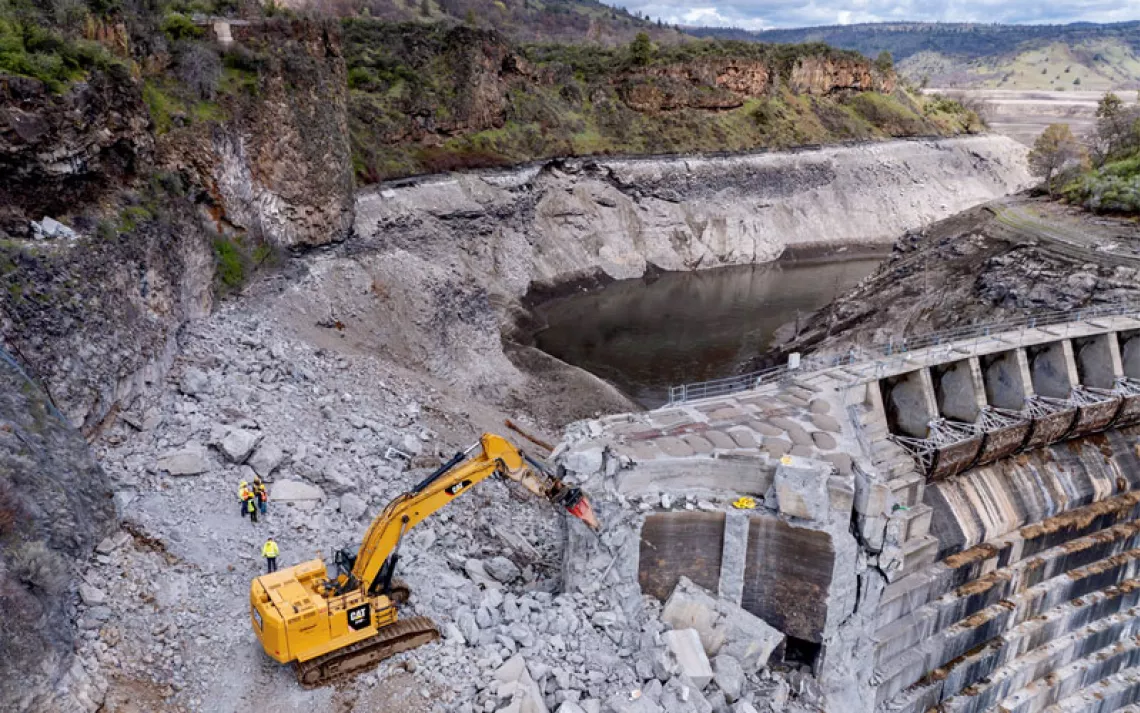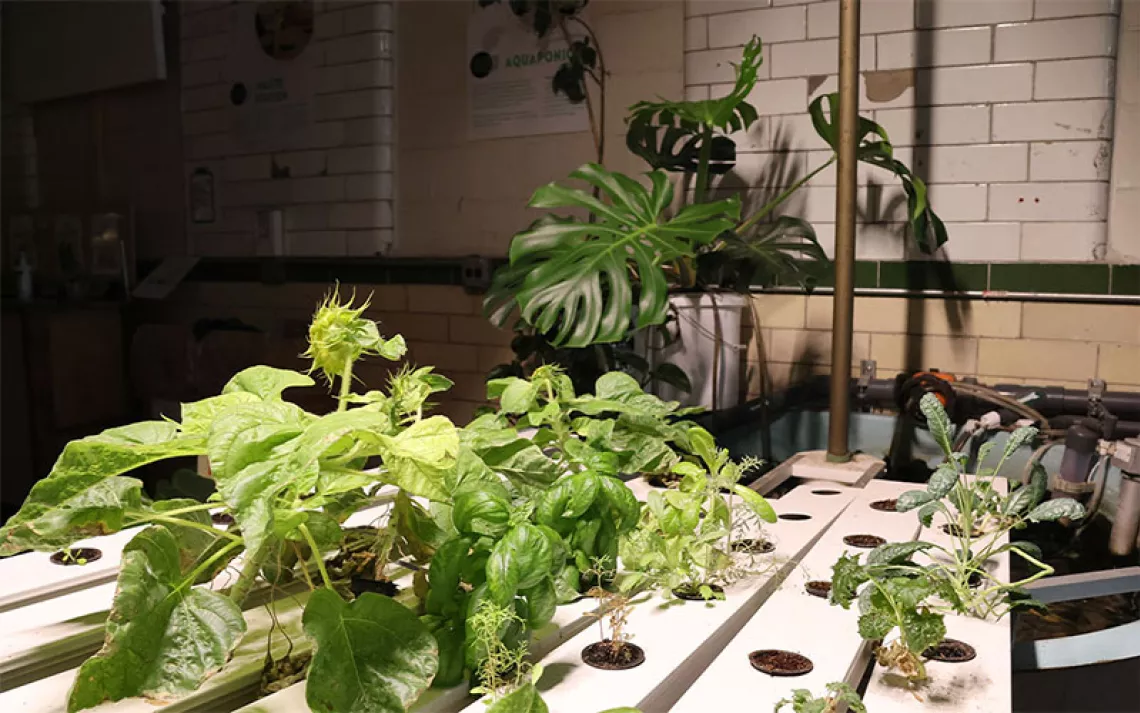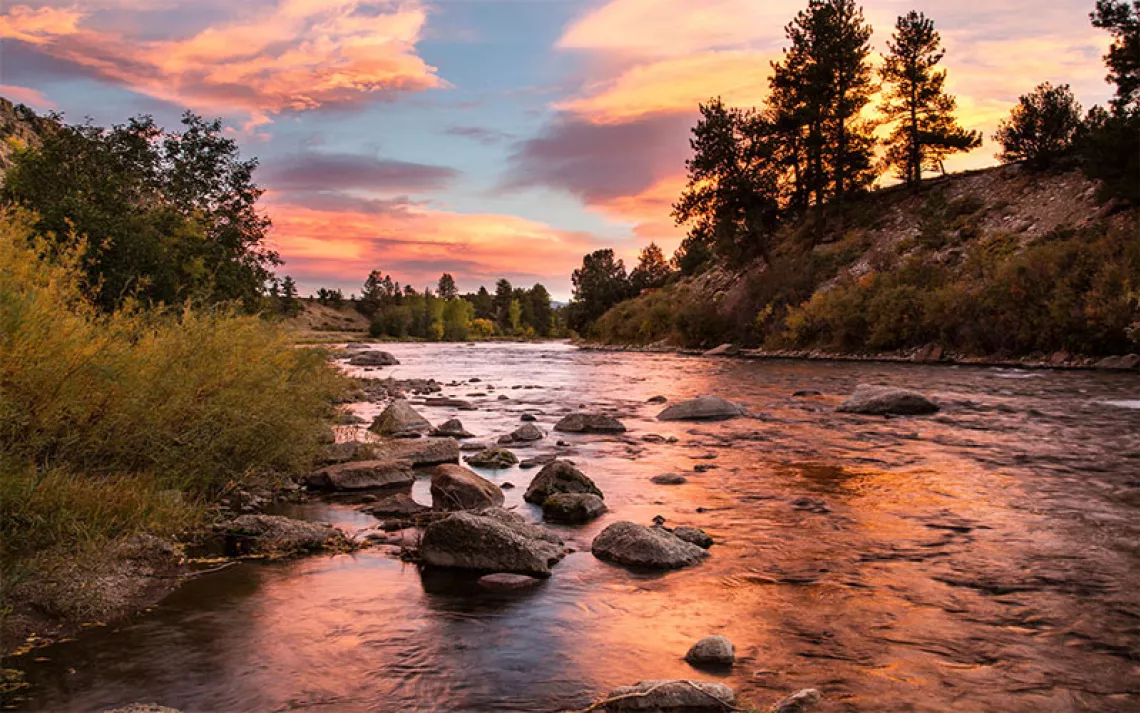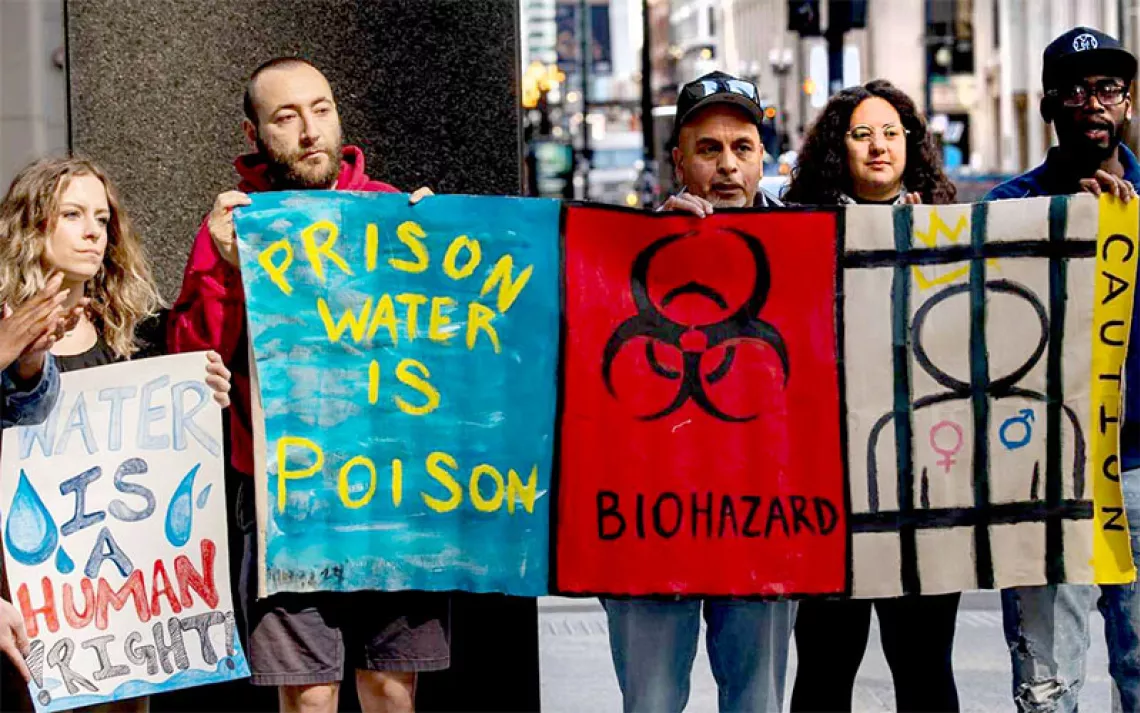In Florida, a River Gets Rights
How Orange County became the most populous area in the US to recognize rights for nature

Floridians voted to give some waterways, like the Wekiva River, new legal rights. | Photo by Paul F. Ingwalson
In the summer of 2020, the Little Wekiva River appeared to die. In the span of less than two years, the creek north of downtown Orlando, Florida, had dwindled from the width of a two-lane road to a muddy trickle. Then, in the midst of one of the rainiest hurricane seasons on record, it ran dry. Locals walked the riverbed in befuddled dismay. It was as though the river had simply vanished.
The mysterious disappearance of the Little Wekiva River is an extreme example of the various plagues that bedevil Florida’s waterways. The Little Wekiva is a tributary of the Wekiva River, which is choked by high levels of nitrogen and phosphorus pollution and the accompanying nuisance algae and aquatic weeds. About 1 million pounds of nitrogen from septic tanks, water treatment plants, agricultural waste, and fertilizers on lawns and golf courses leaches into Wekiva basin groundwater each year, and pollution also troubles the nearby Econlockhatchee River. In 2018, toxic algal blooms in both Lake Okeechobee and coastal waters combined to endanger wildlife and local water sources, forcing biologists to measure animal die-offs by the ton.
Then came the November 2020 election—and local citizens’ response to the chronic water pollution. Residents of Orange County, the home of Orlando’s theme parks as well as its biologically rich wetlands, voted to amend their county charter to grant rights to the Econlockhatchee and Wekiva Rivers. The Right to Clean Water Charter Amendment declares that “all Citizens of Orange County have a right to clean water” and that the county’s waterways have a “right to exist, Flow, to be protected against Pollution, and to maintain a healthy ecosystem.”
The election outcome made Orange County the most populous jurisdiction in the United States to recognize legal rights for nature. More than 500,000 people voted yes on the Right to Clean Water Charter Amendment, making this seemingly esoteric legislation, which passed by a landslide margin of 89 to 11 percent, the most popular item on the ballot.
“The Orange County law recognizes a human right to clean water,” says Thomas Linzey, senior legal counsel for the Center for Democratic and Environmental Rights, who has spent much of the past 20 years crafting similar rights-of-nature legislation around the globe.
In 2008, Ecuador rewrote its constitution and included clauses that granted rights to nature—provisions that businesses have since sought to challenge on dozens of occasions but that have survived legal assaults. In 2017, New Zealand passed legislation to grant legal personhood to the Whanganui River, a victory for the Indigenous Māori people, who had spent more than a century fighting for the river’s rights in court. Bolivia, Colombia, and Bangladesh have also established laws recognizing, to various degrees, the rights of nonhuman nature.
But Linzey’s efforts have faced more resistance in the United States, including a federal court striking down Toledo, Ohio’s Lake Erie Bill of Rights. When Linzey gathered with water defenders in a Florida living room in spring 2019, some local environmental activists viewed his legal strategies as a long shot. “I looked at Thomas as a kind of fire extinguisher behind glass,” says Chuck O’Neal, the director of the water-protector group Speak Up Wekiva. “Break in case of emergency.”
In March 2020, Speak Up Wekiva and its supporters succeeded in getting the right-to-clean-water measure on the county ballot. Then they had to make a compelling case to voters to pass it. “I thought of the guy pouring the sidewalk outside,” says O’Neal, who owns a contracting business that refurbishes older homes. “How do I explain it to him—not to make a pun—in concrete terms? If I said, ‘Would you vote for giving rights to the Wekiva River?’ that guy pouring cement would probably think I was from Mars.”
O’Neal and fellow advocates often promoted the measure using the plainest language, pointing out to voters that the amendment would prohibit pollution of Orange County waters while also allowing any local citizen to sue polluters on behalf of the river. Sometimes they made bigger appeals, such as arguing that since the US Supreme Court had recognized legal personhood for corporations, shouldn’t rivers be people too?
Eventually, some local politicians started to embrace the proposed amendment. Nicole Wilson, an insurgent candidate who was trying to unseat an incumbent county commissioner, hitched her campaign to the initiative. Local big businesses like SeaWorld poured money into her opponent’s campaign—and then Wilson pulled off an upset victory. “They identified the work on the clean-water amendment as being radical,” Wilson says. “It really backfired because it drove people to the website to read about it on their own.”
On Election Day, the contest wasn’t even close. The clean-water amendment’s passage marked a trans-partisan victory for the environment; according to county voting records, some 134,000 Trump voters also thought the rivers should have legal rights.
Now, Florida clean-water advocates are pivoting to ensure that the county law remains in force and that state officials in Tallahassee don’t attempt to invalidate it. A year ago, the Florida legislature passed a bill to help clean up the state’s notoriously polluted waterways—a law that some environmentalists described as toothless and others applauded as at least a step forward. The bill included an amendment “prohibiting local governments from recognizing or granting certain legal rights to the natural environment.”
“The state has at its disposal the mechanisms to intervene politically should they decide it’s worth their while,” says J.P. Brooker, the director of Florida conservation at the Ocean Conservancy. The question now is whether state officials will try to enforce the provision or look the other way. It’s not inconceivable that Florida officials will try to dodge, Brooker says, especially given that Governor Ron DeSantis, a Republican, ran on a water-quality platform and that his pro-environment promises “might have helped put him over the edge” in his extremely close 2018 election.
All of which leaves the Central Florida river advocates playing a game of chicken with state officials—a high-stakes game that will determine whether waterways like the Little Wekiva River will have a chance to come back to life.
This article was funded by the Sierra Club’s Our Wild America campaign.
 The Magazine of The Sierra Club
The Magazine of The Sierra Club



